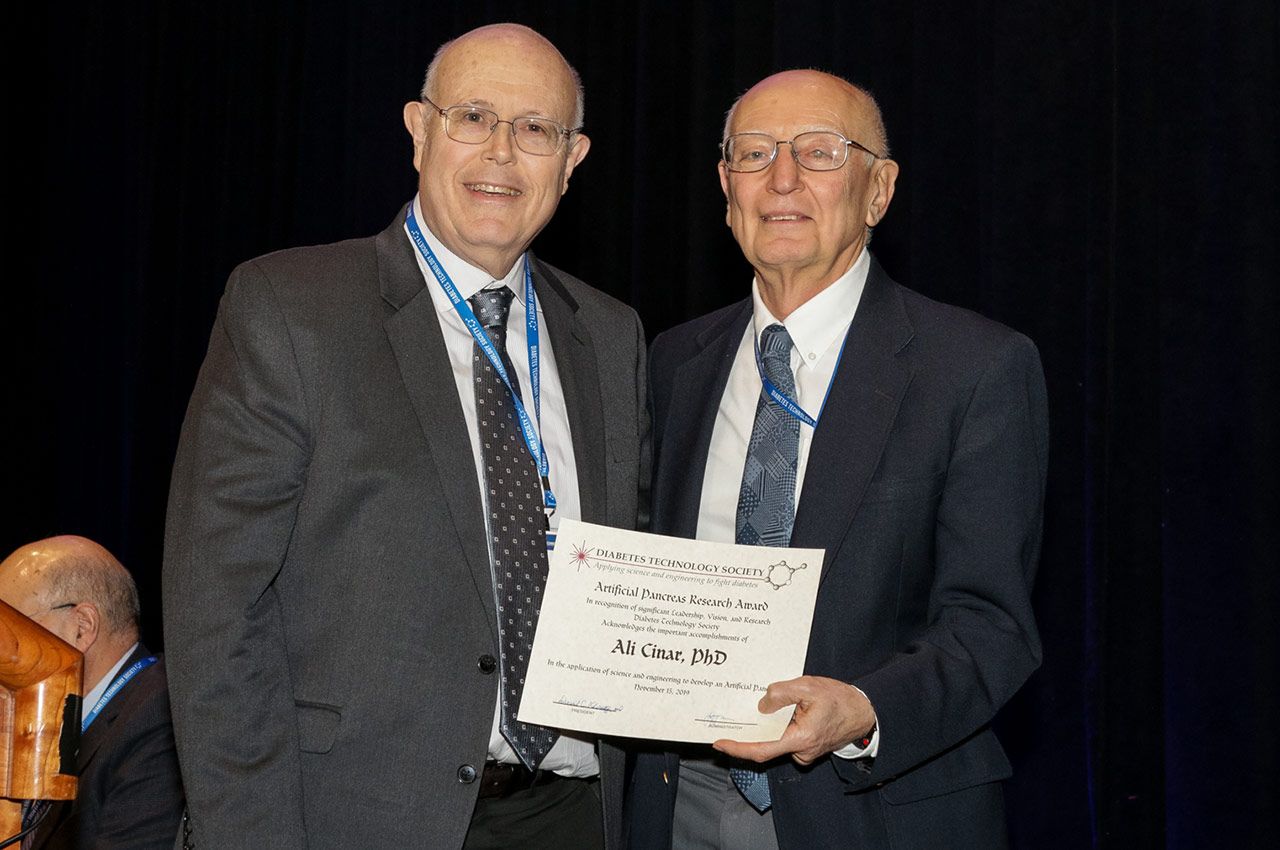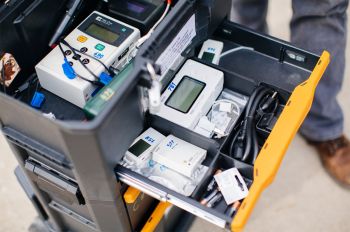Chemical Engineering Professor Receives 2019 Artificial Pancreas Research Award

Ali Cinar, professor of chemical engineering and director of Illinois Tech’s Engineering Center for Diabetes Research and Education, and his research team have developed algorithms for the next-generation automated insulin delivery (artificial pancreas) systems for people with diabetes. He explains that while technologies used for managing diabetes have improved with the hybrid artificial pancreas systems that are commercially available, users are still burdened by the manual entry of information for every meal and make manual adjustments for exercise. His research team’s development of a multivariable artificial pancreas system focuses on further refining the algorithms to predict glucose levels more accurately and offer a fully automated system.
Cinar recently received the 2019 Artificial Pancreas Research Award from the Diabetes Technology Society, recognizing his team’s continued efforts to further refine the algorithms that control the artificial pancreas system, factoring in additional physiological signals from wearable devices that indicate the occurrence of factors such as physical activity that influence future variations in blood-glucose concentration.
“We are the leading research group in the world on multivariable artificial pancreas systems, and the award and research grants enhance our visibility and ability to influence next-generation artificial pancreas technologies,” says Cinar.
He notes that the current generation of artificial pancreas systems—one brand currently on the market and two more expected to be approved in the United States by the Food and Drug Administration in 2020—all rely exclusively on glucose measurements and manual entries of meal and exercise information.
Cinar’s research team is developing a system that facilitates a more accurate prediction of what glucose values will be in the near future and how to adjust insulin accordingly. “We have been the main advocate of using additional information from wearable devices to capture changes that will affect glucose levels, well before glucose begins to change, for a fully automated system,” adds Cinar.
The research progressed by grants from the National Institute of Diabetes and Digestive and Kidney Diseases and Juvenile Diabetes Research Foundation (JDRF). Current JDRF grants to Cinar and his research collaborators enable research in refining the algorithms and integrating the habits and behavior of each individual by harvesting knowledge from past data sets. The JDRF grants include “Additional Signals for Detection and Exercise, Stress and Sleep Effects, and Prediction of Glucose Levels for the Next-Generation AP Systems” with Laurie Quinn, clinical professor in the College of Nursing at the University of Illinois at Chicago; and “Big Data Analysis with Statistical, Control Engineering, Machine Learning, and Error-Embedded Deep Neural Network Techniques for Enhancing Glucose Regulation and AP Algorithms” with Keigo Kawaji, assistant professor of biomedical engineering at Illinois Tech.
The Diabetes Technology Society presented the 2019 Artificial Pancreas Research Award at its annual meeting on November 15, 2019, in North Bethesda, Maryland. This event assembled technology developers and users in an effort to support the creation of new and cost-effective technologies to help people with diabetes.




